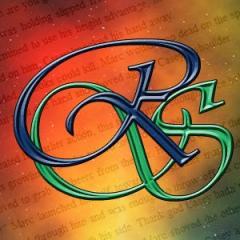Writing Tip Writing Tip: The Indefinite Article
The Indefinite Article
By
andy021278
A daft question: Do I use “A” or “An”?
Well it does seem like a daft question doesn’t it, but it’s amazing how many people still struggle with this; especially when confronted by the more obscure grammatical areas such as acronyms and abbreviations?
I’ve seen wrong uses in stories posted on line, in published works in print, in newspaper articles and even in professional publications.
The basic rule
If you had a halfway decent English teacher at school then you will know this rule like the back of your hand. If you had my English teacher, then get ready for a wee shock.
Many of us were taught to use “a” in front of a word that begins with a consonant, and “an” in front of a word that begins with a vowel. If you follow this rule and treasure it, then I’m sorry to break this to you, but that only tells half the story.
The actual rule is to use “a” in front of a word that begins with a consonant sound, and “an” in front of a word that begins with a vowel sound.
Vowels with consonant sounds
How can a word that begins with a vowel, possibly begin with a consonant sound?
Let’s look at probably the most often used vowel that can have a consonant sound; the letter “u”. If we take two every day words that begin with the letter “u” (uniform and umbrella) and before you read on think about whether you would use “a” or “an” in front of them.
If you follow the rule many of us were taught in school, you would use “an” in front of both them. Although “an umbrella” sounds perfectly reasonable, “an uniform” really doesn’t; we use “a uniform”. But why?
This is where the vowel sound and the consonant sound comes into play. The word “umbrella” begins with an “um” sound (the sound begins with a vowel, and is therefore called a vowel sound), but the word “uniform” begins with a “you” sound (the sound begins with a consonant, and is therefore called a consonant sound).
A few more examples:
an oblong (“ob” sound, vowel sound)
a one-off (“won” sound, consonant sound)
an elephant (“el” sound, vowel sound)
a unicorn (“you” sound, consonant sound)
Consonants with vowel sounds
How can a word that begins with a consonant, possibly begin with a vowel sound?
Let’s look at probably the most often used consonant that can have a vowel sound (at least in my opinion), the letter “h”. If we take two everyday words that begin with the letter “h” (hospital and hour), and now before you read on, think about whether you use “a” or “an” in front of them.
If you use the rule many of us were taught in school, then you would use “a” in front of both them. Although “a hospital” sounds perfectly reasonable, “a hour” really doesn’t; we use “an hour”. But why?
Again, this is where the vowel sound and the consonant sound comes into play. The word “hospital” begins with a “hoh” sound, but the word “hour” begins with an “ow” sound.
A few more examples:
a hotel (“ho” sound)
an honourable person (“on” sound)
a xylophone (“zy” sound)
an x-ray (“ex” sound)
The dreaded letter “h”
In spite of how simple this now hopefully sounds to all of you, the “h” words can actually cause a lot of problems.
The first thing that causes problems is the simple fact that most people mispronounce the letter “h” as “haitch”, when in fact it is pronounced “aitch”; this causes confusion over the vowel and consonant sounds discussed earlier.
The second issue that can cause problems is that the English speaking world is full of what are called “h-droppers”, those who do not pronounce the initial letter “h” in words; an affectation probably most common in Londoners (trust me, I’m guilty of it myself).
The third problem stems from the fact that historically in UK English the initial letter “h” was often not pronounced or pronounced very softly (something that was arguably adopted from the French language), and in some cases has persisted into modern times.
So for whatever reason, hospital gets pronounced as “ospital”, helpful gets pronounced as “elpful” and so on. All of a sudden, and rather disturbingly, “an hospital” or “an helpful person” sounds right; what is even more disturbing is the fact that my MS Word 2007 grammar checker has not flagged either of these as being incorrect.
One particular word, “historic” (and its derivatives such as “historical” and “historically”), is a major bone of contention. The main reason is that most people do not know if it is pronounced “historic” (i.e. the “h” is pronounced) or if it pronounced “istoric” (i.e. it is one of those English words where the “h” is silent, like it is in the word “hour”). It is correctly pronounced as “historic” (I’m talking about in UK English, though “historic” also appears to be correct in American English); so it is always correctly written as “a historic” (and consequently, “a historical” and “a historically”).
Abbreviations, initialisms and acronyms
The “a” vs “an” rule is exactly the same as with words; it doesn’t make a difference. You use “a” when they start with a consonant sound, and “an” when they start with a vowel sound; you just need to know whether each letter is pronounced separately (an initialism such as CIA), read as a word (an acronym such as NASA), or just read as the actual word (an abbreviation such as etc.). So a few examples are:
an FBI agent (“ef” sound, this is an initialism, read as “F B I”)
a NASA astronaut (“nah” sound, this is an acronym, and read as “Nasa”)
an NHS hospital (“en” sound, this is an initialism, read as “N H S”)
a Capt. of the guard (“ka” sound, this is an abbreviation, read as the original word “captain”)
a PDF file (“pea” sound, this is an initialism, read as “P D F”)
-
 4
4






13 Comments
Recommended Comments
Create an account or sign in to comment
You need to be a member in order to leave a comment
Create an account
Sign up for a new account in our community. It's easy!
Register a new accountSign in
Already have an account? Sign in here.
Sign In Now